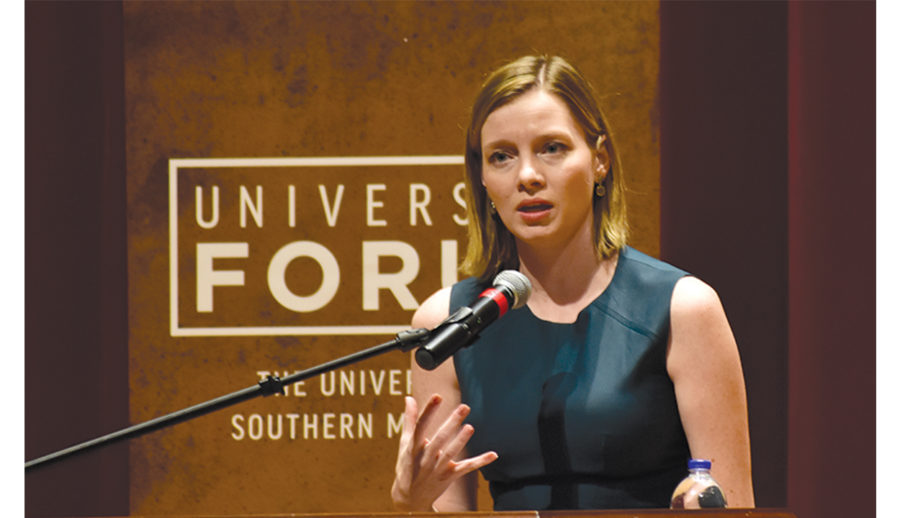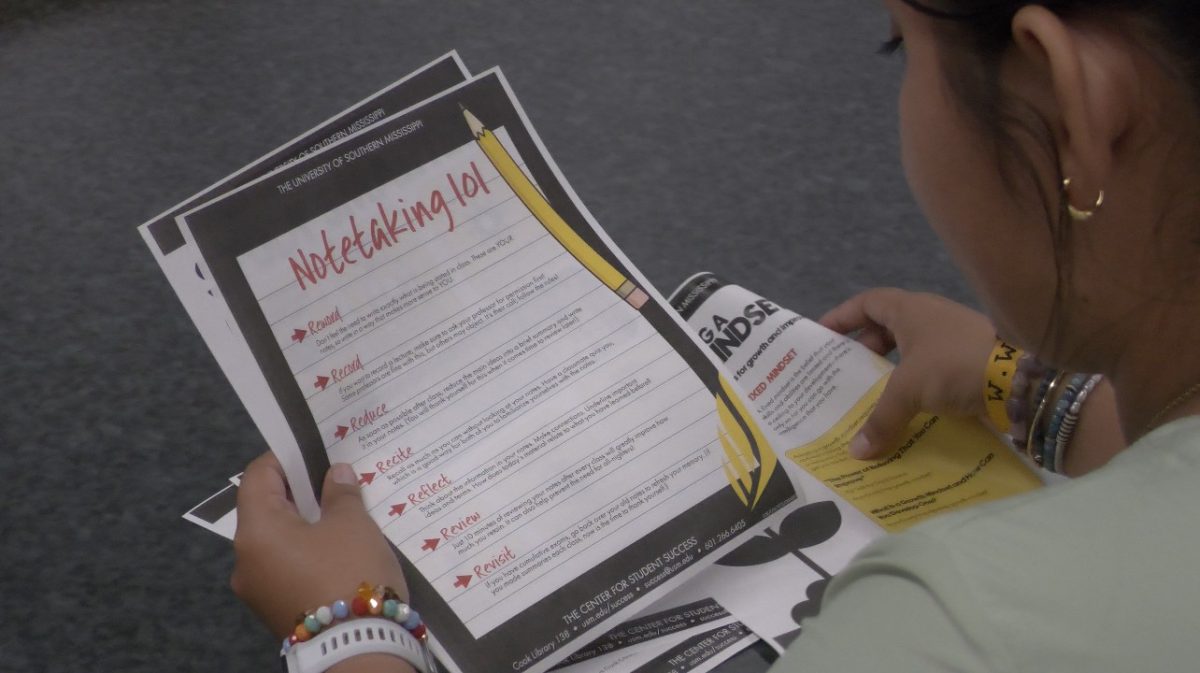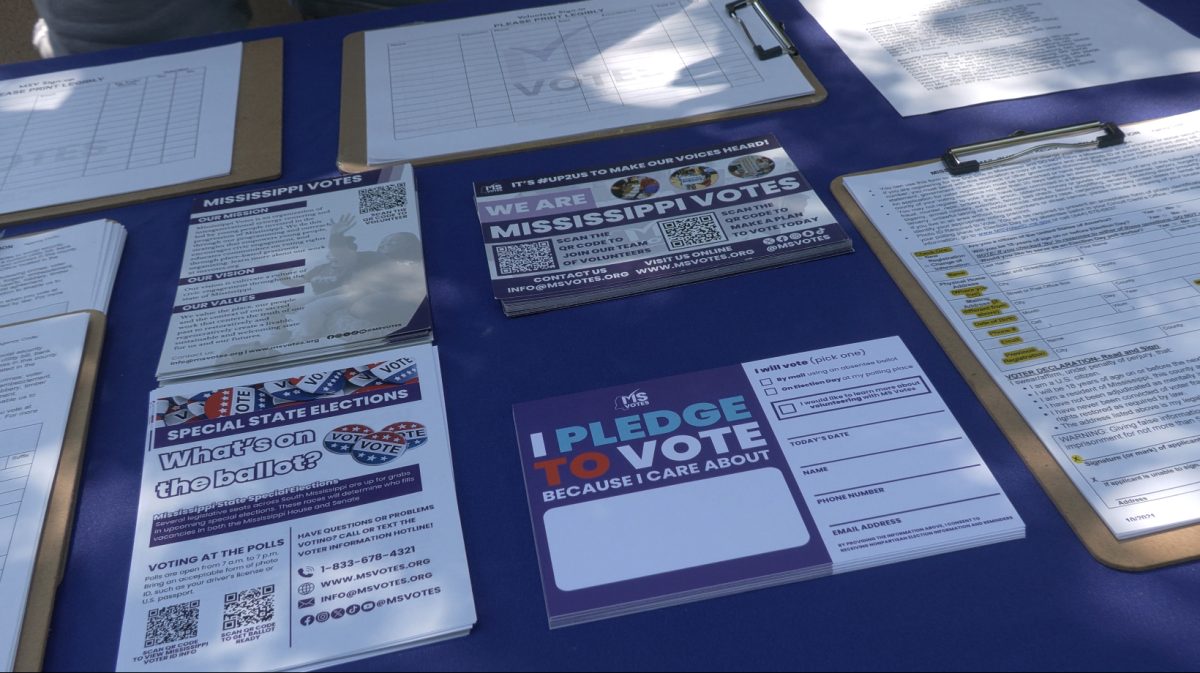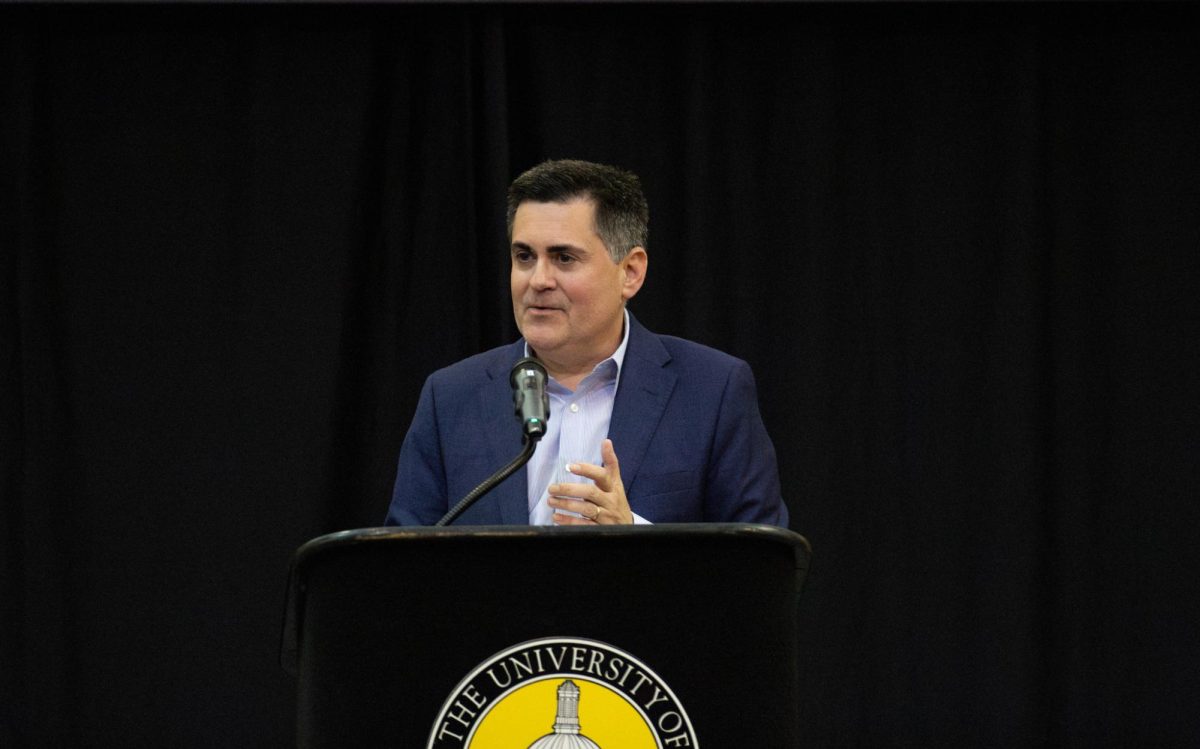On Tuesday night, The University of Southern Mississippi Honors College hosted the lecture “The Selfie Vote: Millennials and the Republican Party” presented by Kristen Soltis Anderson, author of “ The Selfie Vote: Where Millennials Are Leading America (And How Republicans Can Keep Up),” as part of the Spring 2017 University Forum series.
Anderson, an ABC News political contributor, began the lecture by letting the audience know that this was her “first time ever visiting the state of Mississippi.”
Anderson quickly moved to the main points of her lecture, giving a breakdown of each election from 2004 until the most recent. She called the 2004 election an “electronically organized campaign” and the 2008 election a “Facebook election.”
“This was when Facebook really became a political tool,” she said.
Anderson said Twitter was used as a political tool in 2010. Lastly, she called 2016 the “selfie election.”
“No longer do you want to shake a politician’s hand or them to kiss your baby,” Anderson said. “We no longer want an autograph. We want selfies. We have finally come to the moment of the selfie election.”
Anderson shared with the audience what made her want to study politics and Republicans. According to Anderson, her interest in politics began after being asked, “How can you be a Republican?” so many times.
She said millennials are changing and shaping the future of politics in this country.
“What sets us apart is the amount of technology we use and the way that it’s embedded in our lives,” she said.
Anderson reiterated that when it comes to elections, millennials (anyone born between 1980 and 1999) matter.
“There are five different trends that define millennials,” Anderson said. “The first trend is the evasion of being labeled an any certain way.”
She compared this resistance to how millennials consume music.
“Now we can go on Spotify and listen to just one song without buying the whole album,” Anderson said. “Why do we have to have the whole album?”
She said the same reasoning applies to politics.
“Why do we agree with everything that comes with being a Democrat?” she said. “Why do we have to agree with everything that comes with being a Republican? Labels come with baggage that people aren’t comfortable with.”
Anderson said the remaining four millennial trends were a distrust of existing institutions, a moral lens through which they view the world, being very mission driven and placing value on authenticity.
Anderson wrapped up the lecture with a warning.
“It seems like a good time to be a Republican, but they’re missing the tidal wave that is heading their way,” she said. “Assuming that everything is fine and that everyone loves the GOP is risky.”
Anderson proposed an analogy of someone who is constantly going to the doctor, constantly receiving the same treatment and not getting better. Anderson said one day the doctor will suggest an experimental drug that “might” work, one that has side effects and could kill the patient.
“If you’ve been sick long enough, sometimes you take the experimental drug,” she said. “And that’s what happened in this election. Voters took the experimental drug.”
University Forum Director and Associate Professor Andrew Haley concluded the lecture by taking questions from the audience for Anderson and thanking them for their participation.
Haley said the forum was incredibly successful.
“We just had a major political shift in this country, and we need to know why things are happening” Haley said. “She is exactly what we were looking for. We want Southern Miss to be a part of the national conversation.”
The next University Forum will be held on April 11 and is titled “Tribe: War Veterans” by Sebastian Junger.
































